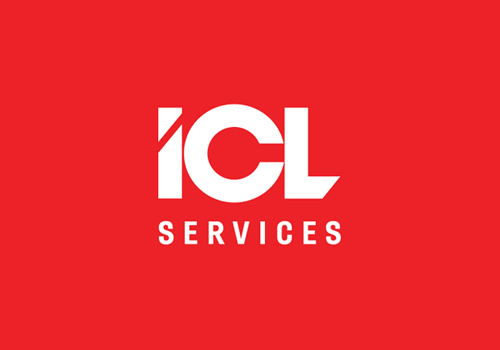Готово!
Скоро материал придет на указанную электронную почту. Также подписывайте на нас в Facebook
Ok
How to build CSR processes if you are not Nestle?
Transnational corporations (Fujitsu, Nestle, etc.) build their businesses based on corporate social responsibility (CSR) principles: They create clear policies, apply them in production and monitor conformity, Why? Possibly, because "business can only flourish in societies in which human rights are respected, upheld and advanced" (Paul Polman, CEO, Unilever).
Our business (IT-company ICL Services) is approximately 150 times smaller than Unilever and 300 times smaller than Nestle. We are included in the top 100 of global outsourcing companies and work with Customers from 26 countries, but 90 % of our employees are in Russia.
Our experience shows that, in order to build a successful business based on social responsibility principles, you don't necessarily need transnational corporation assets.
CSR principles are regulated by ISO 26000. It focuses on 6 main aspects:
- human rights;
- compliance with labor practices;
- environment;
- fair operating practices;
- consumer issues;
- community involvement and development.
Usually everything is clear with labor and operating practices because they are regulated by laws. In a blog on CNews we discussed how to build environment and community development processes. Today we will share the experience of implementing human rights compliance in an IT-company.
To demand anything from its employees in the field of CSR, the company needs to:
- formulate its own goals;
- clearly explain them to its employees and allow for consultations;
- define requirements hierarchy.
We solved these problems when we recorded the CSR requirements in the corporate Policy. It is available for all employees. Everyone knows: an order violating CSR regulations can be disputed using the Policy. In a complex case you can contact the compliance-manager, deputy director of HR or the CEO in person.
The company's CSR Policy includes the principle of observing human rights:
"The Company respects human rights, understanding that they are inseparably applicable in the countries where the Company operates, in all cultures and in any circumstances; it takes all measures to observe them, and assumes that making profit from situations where legislation or its application does not guarantee the necessary human rights protection is unacceptable."
Suppose, that company X produces high-quality products and observes the rights of employees and customers. Y is a supplier of raw materials for X and secretly uses child labor. X grows, requires more raw materials, and 12-year-olds are having to work longer shifts at Y's plant. X does not violate laws, but encourages violation by its own activity.
To avoid the possibility of such cases, we created a Code for suppliers and business partners and require that all our contractors to comply with it.
The letter of the law requires that companies comply with the Labor code of the Russian Federation and other Russian and international regulations. In our opinion, the spirit of the law requires more than that: to expand legal minimum guarantees to the extent of the company's capabilities. We focused on several areas:
- stimulate employees for continuous education and development;
- provide the opportunity for recognition and self-fulfillment;
- provide the opportunity for professional and career growth;
- invest in the health and well-being of employees.
Investments in health and well-being
We provide private medical insurance for our employees, including expensive dentistry. Our offices have medical rooms and every year we provide free vaccinations and fluorography. We reimburse the cost of gym membership, rent football, volleyball and basketball playing grounds for our employees and support participation in sporting events (Kazan Marathon).
These investments also cover the families of employees. For example, we partially reimburse expenses on sanatorium therapy for children of employees, we organize events for them, etc. On significant family events (wedding, birth of a child), employees get additional payments.
Education and development
We pay for the education and certification of our employees in full. They can develop their technical skills, soft skills and learn foreign languages on external and internal courses. As a result, every year 90–95 % of our employees take advantage of the education opportunities.
Recognition and self-fulfillment
We have more than 15 recognition programs: official and informal, for business results and volunteering, technical achievements and for helping colleagues. This means that anyone who performs something interesting and significant for themselves can receive company recognition.
Transparent growth system
Together with employees, we have built a system for evaluating performance: we tested it across the entire company and used feedback to improve it. We automated it to get objective results. We consider employees for management and senior engineering positions. The rules for performance evaluation, certification and position change are registered in public documents.
Working according to CSR principles is not a one-time result, but a continuous process. It involves the company and every employee – from the director to junior specialist.
The company's task is to guarantee a "basis" for the employees: a well-thought-out, documented official position that is consistently observed and monitored. Our experience shows that it is quite possible to build such a platform. And we hope that more companies will join those that understand the importance of business responsibility to society.
Related news
- 12 October
Anti-corruption practices in Russian IT business
According to experts from Ernst & Young more than a half of Russian respondents believe corporate corruption commonplace, however, they are not willing to tolerate it.
- 11 November
Social and charitable initiatives of ICL Services
Business does not exist in a vacuum. Employees and the company are part of the local and global community. Therefore, commitments on social responsibility include responsible interaction with society.
- 2 August
ICL Services has found ways to maintain and develop its corporate VHI program in real world conditions. Its experience may be applied by other Russian large companies.
- 10 August
“Work at first sight”. What makes a company comfortable for the employee?
Results of a responsible approach to employment practices are obvious at our company example.
- 9 October
How to create work processes that your employees will like?
ICL Services would like to share our expertise in building processes on staff relations.
- 16 October
Charity during the crisis: ICL Services study case
We will tell about the good deeds done by the staff of ICL Services.
- 19 October
A Magic Pill LEAN practices in ICL Services
Do you have a "magic pill" that improves the performance of your team?
Stay informed
Subscribe to our newsletter and keep up with our latest news

